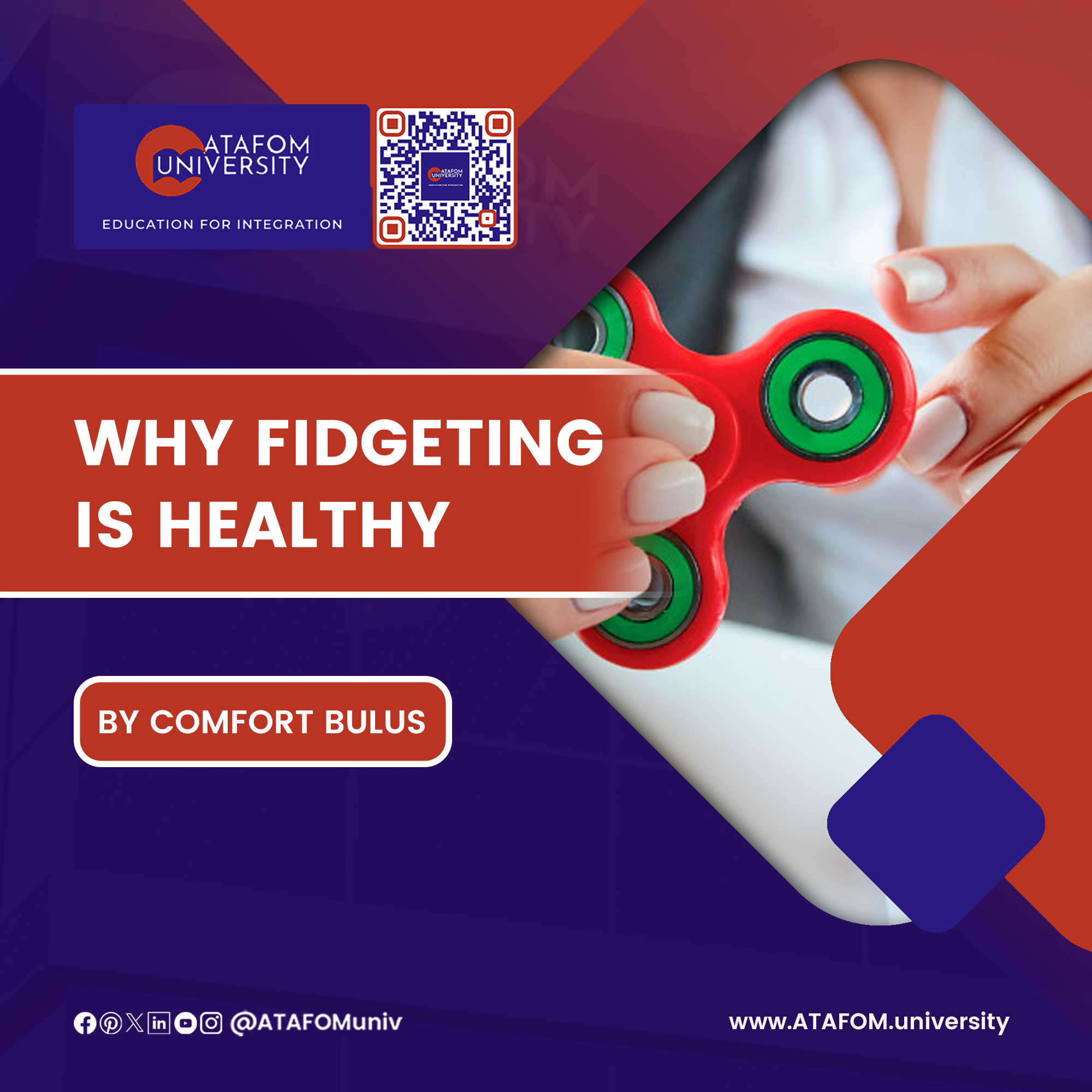It may be time to reconsider how we see people who jiggle, tap, and tinker because it is sometimes assumed that they are being unpleasant, nervous, or simply not paying attention. I am sure we have pleasant memories from our younger days of friends or classmates who were often reprimanded for fidgeting during storytime, swinging on their chairs, and carelessly gnawing the pink rubber caps off pencils while others sat perfectly cross-legged. Children eventually learn to resist the need to fidget as a result. They can sit still for hours without ever moving now that they are older. As it turns out, we might have been in a better position earlier. According to a study, fidgeting helps us manage stress, maintain a healthy weight, and live longer.
Sedentary behaviour is terrible for your health. On a recent episode of the BBC’s The Infinite Monkey Cage, Janet Cade, a nutritional epidemiologist at the University of Leeds, says that being sedentary and fidgeting lowers your chance of long-term ill health. Let’s examine the research in greater detail to learn more.
Fidgeting is a neurologically programmed rhythmic movement in the body, expressing an underlying desire to move. Obesity has nearly tripled worldwide since 1975, partly due to sedentary employment. Prolonged sitting slows metabolism and affects blood sugar and blood pressure regulation. However, data suggests that fidgeting may encourage movement, like a vibration signal on a fitness watch, which may help manage weight. Office workers with slimmer bodies tend to indulge in fidget urges more frequently, standing and moving for two hours longer per day than those with obesity. Fidgeting can help burn surplus energy, increasing calorie burn by 29% compared to sitting motionless. Standing fidgeting involves rocking or shifting from foot to foot, expending more calories than lying down. Fidgeting is not a substitute for exercise or movement but can help maintain energy balance.
Like the spark plugs in a car, fidgeting can bring about benefits by reacting to them. In a study, 16 thin volunteers were given 1,000 more calories daily for eight weeks, and some showed remarkable resistance to weight development by engaging their fidget elements. The study discovered that overeating can cause people to move more unconsciously, including walking more vigorously, which increases daily energy expenditure by 700 calories. The difference in fat storage caused by this “non-exercise activity thermogenesis” was multiplied by ten. Songbirds, like finches, support this discovery and never seem to gain weight while bingeing on seeds from bird feeders. This ‘energy’ refers to more than simply the quantity of food ingested but also to what is absorbed via the gut and subsequently utilised by cells.
By employing signals like a vibrating fitness tracker or altering their routine or environment, those who struggle to move or resist the need to fidget might still benefit from the fidgety behaviour. It helps to manage weight and enhance general health. Fidgeting also benefits our brains.
Fidgeting is directly connected to cognitive ability, but its effectiveness depends on the type of fidgeting. For instance, tapping feet while sitting can protect leg arteries and prevent vascular disease. Fidgeting can cause physiological stimulation, improving concentration. Studies show that participants who doodled while on the phone remembered 29% more details than those who did not. Non-stereotypical actions, like swiping a fly before hitting a serve, can distract and help focus. Stereotypical movements may result in better task performance or indicate active involvement. The directionality of this link is still being explored. Movements can affect complex cognitive abilities, potentially treating patients with ADHD and other behavioural disorders.
Fidgeting can help manage stress and reduce the risk of chronic diseases like cardiovascular illnesses, diabetes, obesity, depression, and anxiety. Engaging in “displacement behaviours” like scratching, biting, or stroking the face can also reduce stress. Fidgeting also protects arteries in the legs and reduces the risk of vascular disease. Women who fidget moderately or a lot have no increased mortality risk from prolonged sitting. However, it is often perceived as disrespectful or an indicator of inattention. Suppressing the urge to fidget naturally harms public health, but society can battle against sedentary habits and settings. People may live longer, healthier, happier, and more in shape if they allow their bodies to move naturally.
Getting ahead in life begins at ATAFOM University International. Everyone is ‘someone special’ who will play an essential role in their community and the world. We do away with the world’s concepts of discrimination by ensuring that every ‘fifth’ student has a chance. Our sustainable, multi-cultural, cross-denominational and cross-gender integrative educational concepts provide all our students equal opportunities. Good work comes from the best minds at ATAFOM University. Enrol today!


